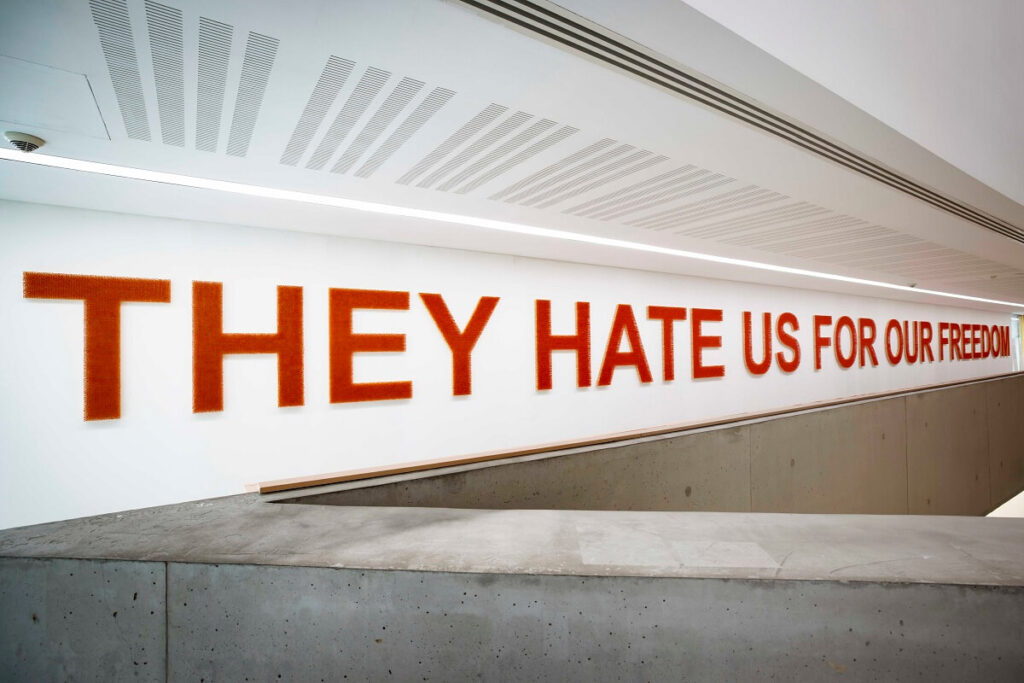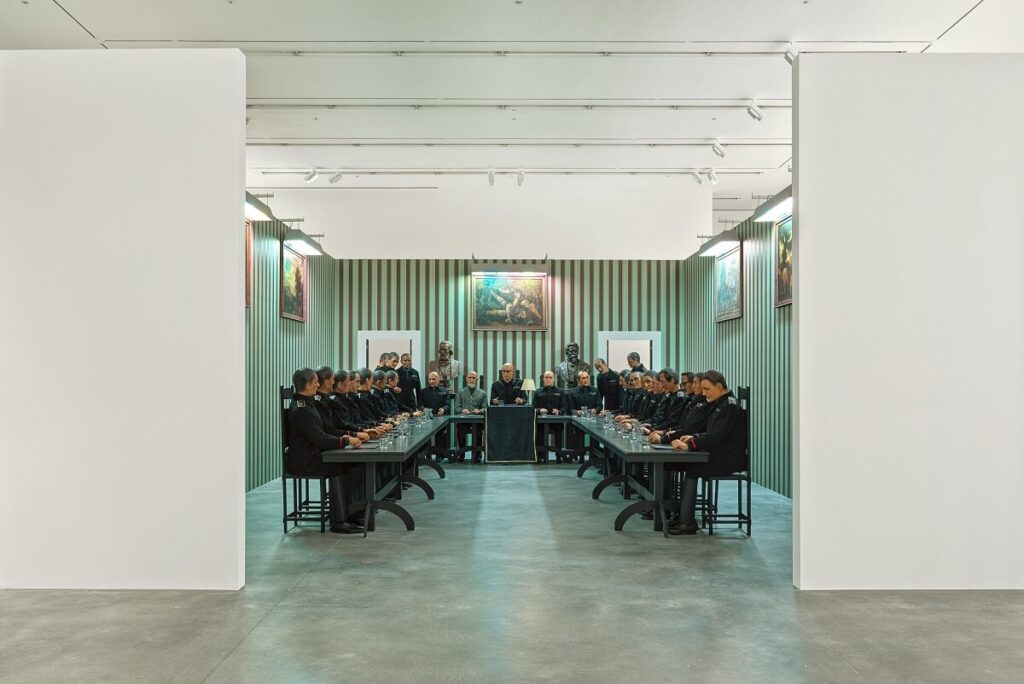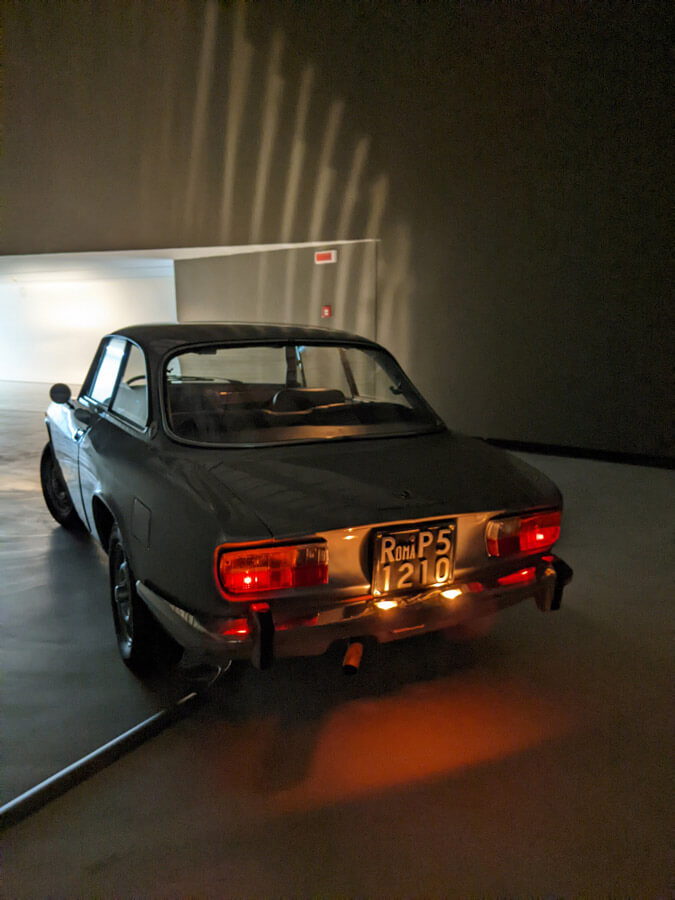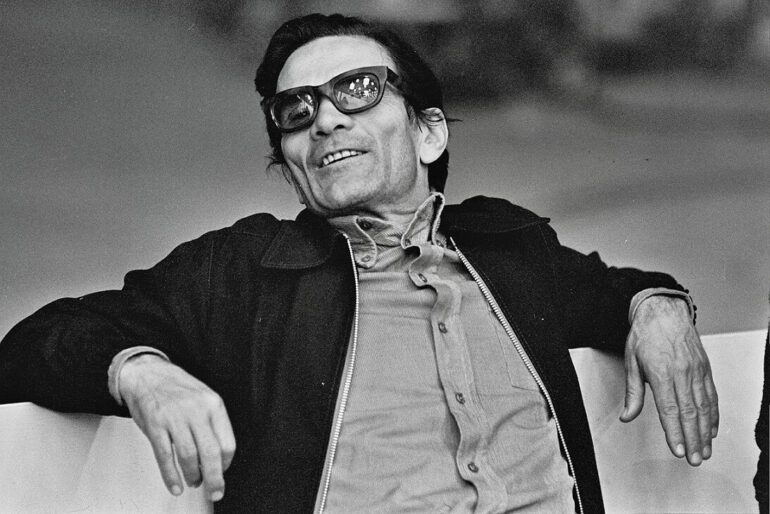A thought-provoking exhibition celebrates the Italian poet
The exhibition Pier Paolo Pasolini, Tutto è santo. Il corpo politico, at MAXXI from 16 November 2022 to 28 May 2023, curated by Hou Hanru, Bartolomeo Pietromarchi and Giulia Ferracci, is conceived as a close dialogue between the works of artists contemporary to Pasolini and of more recent generations for whom Pasolini still constitutes an essential reference point.
In the modern context of the MAXXI, the works of 19 leading contemporary artists are displayed together with over 200 documents including articles, original typescripts, photographs and interviews that evoke the relevance of Pasolini’s thought.
The choice of the exhibition’s motto, Pier Paolo Pasolini. Tutto è santo (Everything is holy), is inspired by the phrase uttered by the wise man Chiron in the film Medea (1969) and conjures up the mysterious sacredness of the world of the sub-proletariat, archaic and religious, in clear conflict with the heroes of a rational, secular and bourgeois world.
Pasolini continues to be an inexhaustible magnet. Digging into his thought, his literary and cinematographic works, the inspirations, questions and revelations are infinite, and this exhibition is a living testimony of what he left us with.
Giovanna Melandri, President Fondazione MAXXI

The exhibition occupies Gallery 4 of the museum and here, scattered around the space, visitors can explore Pasolini’s political universe through the artworks of 19 Italian and international artists.
The varied works are arranged through the halls, the corridor and some are even hanging from the ceiling (take Dante Ferretti’s period lamps from Pasolini’s last movie, Salò or the 120 Days of Sodom) engaging the viewers into the creative world of Pier Paolo Pasolini.
Starting from the first section, visitors are introduced to Pasolini by Claire Fontaine’s wood panel made of hundreds of red-painted matches ready to catch fire: They Hate Us for Our Freedom (France, 2004) refers to the famous phrase uttered by George W. Bush after the attack on the Twin Towers. Claire Fontaine, a collective founded in Paris in 2004 by Fulvia Carnevale and James Thornhill, uses this installation to communicate the strategy of tension and the process of using convincing words in politics which was a frequent theme of Pasolini’s articles in main Italian newspapers in 1975.
INSPIRATION
Four major museums celebrating Pier Paolo Pasolini’s 100th anniversary

Moving along the corridor, on the right-hand side, Chinese-French contemporary artist Huang Yong Ping will surprise the visitors with A Football Match of June 14th 2002. In this environmental installation, inspired by an event that happened on June 14th 2002, when a meteorite called ASTEROID 2002 MN passed close by the Earth, the world of football becomes a metaphor and an example of life in Pasolini’s writings. The football or “il calcio” is a topic present also in Paolo Ferrari’s photographic memories as one of Pasolini’s favourite activities.

Pasolini repeatedly denounced the homologation of culture and the loss of beauty in the aftermath of the economic boom, also fuelled by “stupid compulsory schooling and delinquent television“.
These themes are present in the video work Comizi di non amore (2004) by Francesco Vezzoli, a reality show in which four celebrities are invited to choose between various suitors. Shot in Cinecittà, this video installation refers to Pasolini’s documentary called “Love meetings”.
Another impressive work is Fabio Mauri’s installation Oscuramento which reflects on the degradation of the system of power and politics: 16 large-format photographs portraying politicians of the time obscure the windows, while 29 wax statues in military uniform seated around a table with the figure of Mussolini in the centre recreate the last session of the Grand Council of Fascism on 24 July 1943, which sanctioned the end of the regime.

Pier Paolo Pasolini’s violent death happened on 1975, November 2nd, under circumstances that are still unclear. Elisabetta Benassi‘s work Alfa Romeo GT veloce (1975 -2007), evokes the vehicle driven by Pasolini on the night he was killed. It is like entering a movie set: the light of the unfolded headlights dazzles and disorients the visitor, creating a space-time short-circuit: the car is undamaged, the headlights look ahead, as to express the idea that Pasolini’s thoughts are alive and brighten the way forward.

Until May, 28
MAXXI
Via Guido Reni 4a – Rome
Opening times: Tuesday to Sunday 11 am – 7 pm
Tickets: Full 12 € – Reduced 8€


